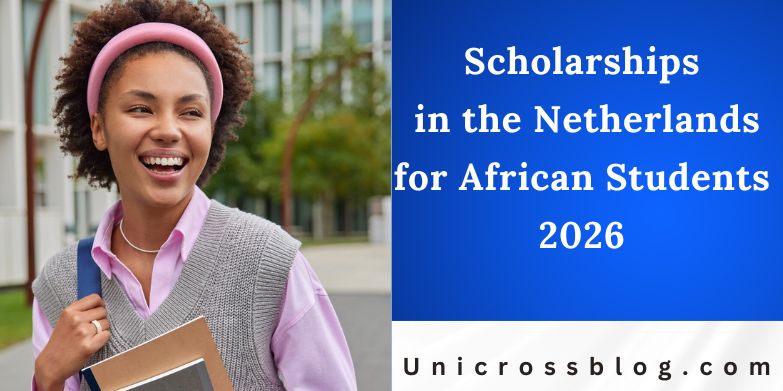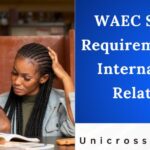The Netherlands stands as a beacon of academic excellence and innovation in Europe, attracting students from across the globe with its world-class universities, cutting-edge research facilities, and vibrant multicultural environment. For African students, pursuing higher education here offers not just quality learning but also opportunities to engage with global challenges like sustainable development, climate resilience, and economic growth, many of which resonate deeply with the African continent. With over 2,100 English-taught programs at bachelor’s and master’s levels, Dutch institutions emphasize practical, interdisciplinary approaches that prepare graduates for impactful careers.
One of the most appealing aspects for international students, particularly those from Africa, is the availability of scholarships designed to reduce financial barriers. These awards, funded by the Dutch government, universities, and international organizations, cover tuition, living expenses, travel, and more. In 2025-2026, scholarships like the NL Scholarship and specialized programs such as the Africa Scholarship Programme at Wageningen University are actively supporting African talent. This guide explores key opportunities, eligibility criteria, and application tips, empowering you to turn your educational dreams into reality. Whether you are aiming for a master’s in environmental engineering or a bachelor’s in international business, the Netherlands provides a supportive pathway for African scholars to thrive.

Key Scholarships for African Students
The Netherlands offers a range of scholarships designed to support African students, enabling access to its world-class education system. These awards, funded by the Dutch government, universities, and international organizations, target academic excellence, leadership, and contributions to development in Africa. Below are the most prominent opportunities for 2025-2026, covering bachelor’s, master’s, and PhD programs across disciplines like engineering, agriculture, and business.
1. NL Scholarship
The NL Scholarship, previously known as the Holland Scholarship, is a widely accessible program for non-EU/EEA students, including those from African countries. Financed by the Dutch Ministry of Education, Culture and Science alongside Dutch research universities and universities of applied sciences, it provides 5,000 euros for the first year of a full-time bachelor’s or master’s program. Institutions like the University of Twente, Delft University of Technology, and Maastricht University participate, supporting fields from international business to sustainable energy. Eligibility requires non-EEA nationality, admission to a qualifying program, and no prior Dutch degree. Applicants must submit a motivation letter and academic transcripts, with deadlines typically between February and May 2025, varying by university. This scholarship has empowered students from Nigeria, Kenya, and Ghana to pursue studies while fostering diversity in Dutch campuses.
2. Africa Scholarship Programme (ASP) at Wageningen University
Tailored exclusively for African students, the ASP at Wageningen University and Research is a fully funded master’s scholarship for programs in agriculture, environmental sciences, and food technology. Valued at up to 24,000 euros annually, it covers tuition, a monthly living allowance, travel costs, and insurance for one or two-year programs. Wageningen, a global leader in life sciences, prioritizes applicants from any African country who hold a first-class honors bachelor’s degree with at least 80 percent GPA and rank in the top 5 percent of their class. Candidates must not have a prior master’s degree. The application process is rigorous: apply to an MSc program by February 1, 2025, followed by assessments in March, an assignment in early April, and interviews in late April, with results by May 8, 2025. This program not only funds education but also builds networks for post-graduation impact in Africa.
3. African Water Corridor Scholarship at Delft University of Technology
This scholarship targets Sub-Saharan African students pursuing an MSc in Environmental Engineering, specifically the Water Resources Engineering track, at TU Delft. Launched for 2025-2026, it offers two full scholarships, each covering tuition (approximately 20,000 euros), a 1,000-euro monthly stipend, and travel expenses. Aimed at addressing water challenges like flooding and drought in Africa, eligibility requires a relevant bachelor’s degree, strong academic performance, and a motivation letter linking studies to regional development. Applications close on January 15, 2025, with selections based on essays and references emphasizing innovation in water management. TU Delft’s practical projects, such as flood modeling, make this ideal for students from water-stressed regions.
4. Justus and Louise van Effen Excellence Scholarships at TU Delft
Also at TU Delft, this merit-based scholarship supports African students from developing countries pursuing master’s degrees in disciplines like aerospace engineering, computer science, or sustainable energy. Fully funded at 30,000 euros per year, it covers tuition, housing, and living expenses for two years. Applicants need outstanding GPAs, leadership experience, and non-EU/EEA nationality. The application deadline aligns with TU Delft’s master’s admissions, typically December 2025. Successful candidates often demonstrate potential to lead transformative projects in their home countries, with past recipients from Africa contributing to infrastructure and technology sectors.
5. Orange Tulip Scholarship
The Orange Tulip Scholarship targets students from select African countries, including South Africa and Nigeria, for bachelor’s or master’s programs at partner institutions like Maastricht University and Radboud University. Awards range from partial to full tuition waivers, depending on the university and program. For example, Maastricht may cover up to 13,000 euros for business or social sciences programs. Eligibility varies by country and institution, requiring strong academic records and proof of English proficiency (IELTS 6.5 or equivalent, often waived for English-taught bachelor’s holders). Deadlines fall between March and June 2025, and applicants should check specific university requirements via the Study in NL portal.
6. NRF-Nuffic Programme for South Africans
This program supports South African citizens pursuing joint PhD degrees with Dutch universities. Funded by the National Research Foundation and Nuffic, it covers research costs, travel, and living expenses for programs addressing development challenges like health or education. Applicants need a master’s degree, a research proposal aligned with Dutch-South African priorities, and institutional nomination. Applications typically open in early 2025, with deadlines around April. This scholarship strengthens academic ties, enabling recipients to contribute to policy and innovation in South Africa.
7. IHE Delft Water and Development Partnership
For short-term or master’s study in water-related fields, IHE Delft offers partial scholarships for African students in MSc programs like sanitation and water management. Covering up to 50 percent of tuition and providing stipends, these awards target professionals aiming to address water scarcity or sanitation challenges in Africa. Applicants need a relevant bachelor’s degree and work experience. Deadlines are in June 2025, with selections based on professional motivation and academic merit.
These scholarships collectively offer over 65 opportunities for African students in 2025-2026, particularly for Nigerians, South Africans, and Kenyans. They prioritize fields critical to Africa’s development, such as engineering, agriculture, and public health, ensuring recipients are equipped to drive change. To maximize success, apply early, tailor motivation letters to highlight African perspectives, and secure strong recommendation letters. Most programs accept English proficiency alternatives for applicants from English-speaking African nations, and living costs (900-1,200 euros monthly) are often offset by stipends or part-time work options (up to 16 hours weekly).
Application Tips and Process
Securing a scholarship requires strategic preparation. Start by researching programs on university websites, ensuring alignment with your career goals. Most applications demand a motivation letter (500-1,000 words) highlighting your African perspective, academic achievements, and future contributions. Secure two to three recommendation letters from professors or employers, and prepare transcripts showing consistent excellence.
Deadlines cluster in late 2024 to early 2025 for September 2025 intake; track them via the Study in NL portal. Submit online portals often require proof of English proficiency (IELTS 6.5 or equivalent), though some waive it for English-medium bachelor’s holders. Budget for application fees (50-100 euros) and visa costs post-acceptance. Engage with African student associations in the Netherlands for mentorship, and apply to multiple scholarships to boost chances. Persistence pays off: many recipients apply in their second year after strengthening profiles.
Living in the Netherlands costs 900-1,200 euros monthly, including rent in student cities like Amsterdam or Groningen. Scholarships often include health insurance, but explore part-time jobs (up to 16 hours weekly) for extras. Post-study, the Orientation Year visa allows a year to seek employment, with 70 percent of international graduates staying in Europe.
READ ALSO: UK Scholarship Opportunities Without IELTS 2025
FAQs
Who is eligible for the NL Scholarship as an African student?
African students with non-EU/EEA nationality qualify if applying for a full-time bachelor’s or master’s at a participating Dutch institution. You must meet program-specific requirements and not hold a prior Dutch degree.
What does the Africa Scholarship Programme cover?
It provides full funding, including tuition (up to 19,000 euros), a 1,000-euro monthly stipend, travel allowance, and visa costs for one to two years at Wageningen University.
Can I apply for scholarships without IELTS?
Yes, many like the NL Scholarship and TU Delft programs accept alternatives or waive tests for applicants from English-speaking African countries or those with English-taught bachelor’s degrees.
Are there scholarships for PhD students from Africa?
Yes, the NRF-Nuffic Programme funds South Africans for joint PhDs, while general options like the Rubicon Programme support early-career researchers from developing countries.
What if I am not selected?
Reapply next cycle after gaining experience, or explore partial awards like the Kipaji Scholarship at Twente (12,000 euros supplement). Many universities offer need-based aid.
Do scholarships include family support?
Most cover only the student, but some like ASP include settling allowances. Check for dependents’ visa options separately.
How competitive are these scholarships?
Highly so, with acceptance rates under 10 percent for programs like ASP. Strong GPAs (above 80 percent), leadership, and development-focused essays stand out.







